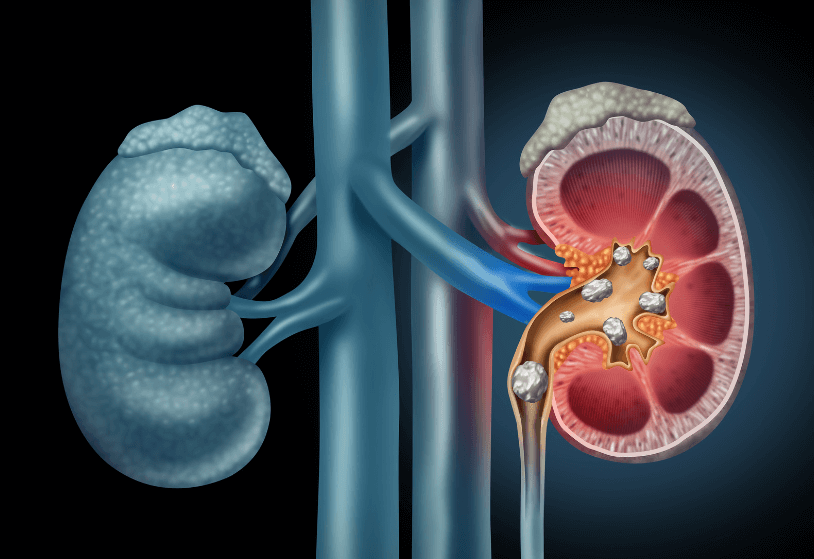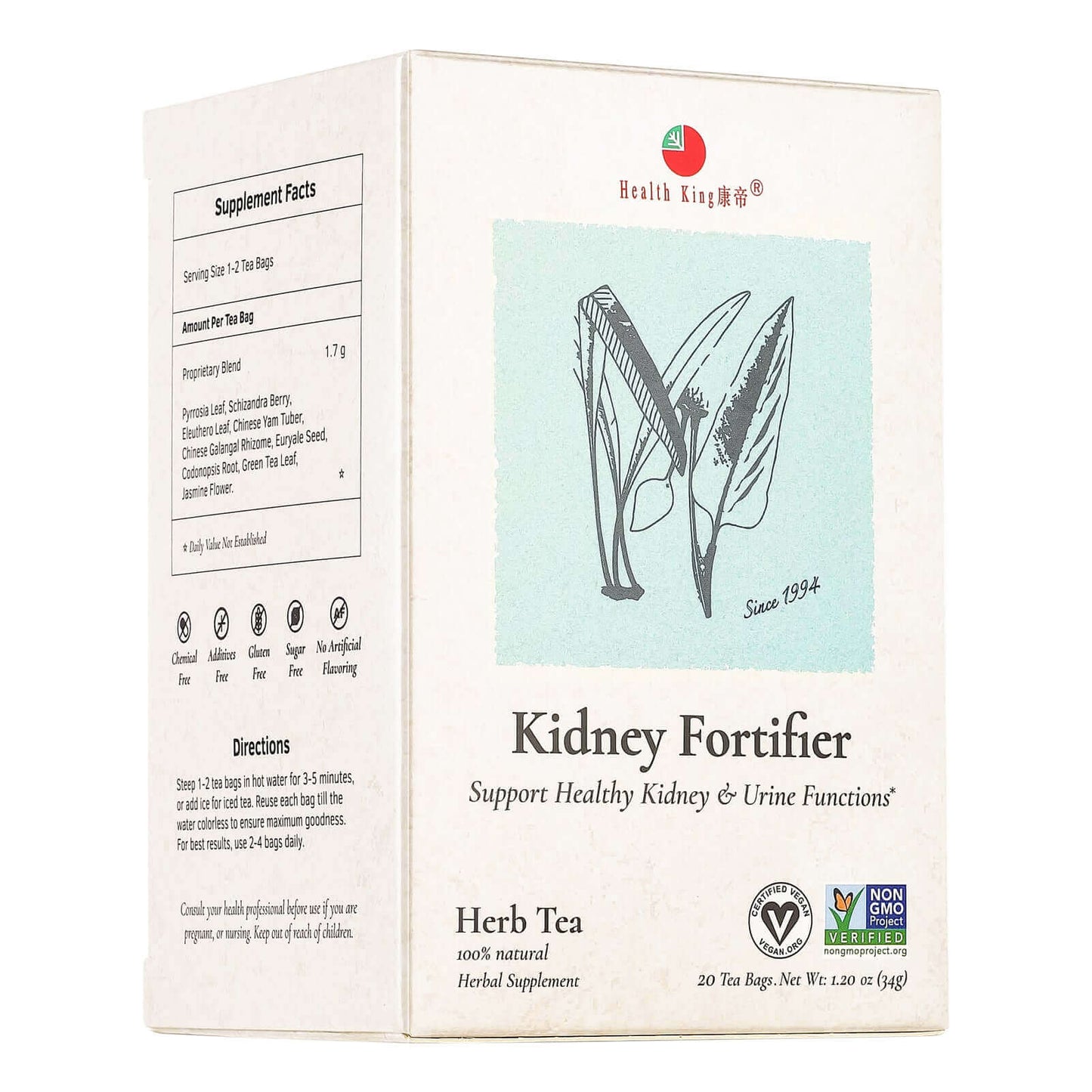
Tips for Maintaining Healthy Kidneys
Share
The kidneys are vital organs, performing numerous functions crucial to our health. They filter waste products, excess water, and other impurities from our blood.
These waste products are stored in the bladder and later expelled through urine. However, maintaining kidney health goes beyond these basic functions.
In this article, we delve into various tips for maintaining healthy kidneys. We explore lifestyle changes, dietary recommendations, and the potential benefits of certain foods and beverages.
For instance, did you know that certain teas can support liver and kidney health? Or that the Chinese Yam could potentially enhance kidney function?
Whether you're looking to improve your kidney health or maintain it, this guide offers actionable tips. These can be incorporated into your daily routine to promote kidney health.
Stay with us as we journey through the path of kidney health.
Understanding Kidney Function and Health
The kidneys are more than just waste filtration units. They play a crucial role in maintaining the body's overall health. They regulate fluid levels, activate Vitamin D for healthy bones, and control the production of red blood cells.
Moreover, kidneys help maintain the balance of salts and minerals—such as calcium, phosphorus, sodium, and potassium—in your blood. This balance is vital for the proper functioning of other organs, including the heart and brain. Understanding these functions underscores the importance of maintaining kidney health.
Risk Factors for Kidney Disease
Kidney disease often sneaks up unnoticed. However, certain risk factors can make you more susceptible to kidney damage. These include diabetes, high blood pressure, and a family history of kidney disease.
Other risk factors include:
- Being over the age of 60
- Heart disease
- Obesity
- High cholesterol
- Prolonged use of certain medications
Being aware of these risk factors can help you take proactive steps to maintain your kidney health. Regular check-ups and lifestyle modifications can go a long way in preventing kidney disease.
The Importance of Hydration
Hydration plays a crucial role in maintaining healthy kidneys. Water helps the kidneys remove wastes from your blood in the form of urine. It also helps keep your blood vessels open so that blood can travel freely to your kidneys, and deliver essential nutrients to them.
But how much water is enough? While the "8x8 rule" (eight 8-ounce glasses of water a day) is a good general guideline, individual needs can vary. It's important to consider factors like your climate, physical activity level, and overall health.
Dietary Choices for Kidney Health
Your diet can significantly impact your kidney health. Consuming a balanced diet rich in fruits, vegetables, and whole grains can help keep your kidneys functioning properly. It's also important to limit foods high in sodium, potassium, and phosphorus.
Here are some dietary tips for kidney health:
- Choose kidney-friendly protein sources like fish and lean meats.
- Incorporate antioxidant-rich foods like berries and leafy greens.
- Limit intake of unhealthy fats and sugars.
- Read nutrition labels to make informed choices.
The Role of Tea in Liver and Kidney Health
Certain teas are known to support liver and kidney health. For instance, green tea is rich in antioxidants that can help prevent kidney damage. It's also believed to aid in the elimination of toxins from the body.
Chinese Yam and Kidney Function

Chinese Yam, a traditional medicinal plant, is believed to have potential benefits for kidney function. It's rich in allantoin, a natural compound that can help promote tissue repair. However, more research is needed to fully understand its impact on kidney health.
Exercise and Weight Management
Regular physical activity is crucial for maintaining healthy kidneys. Exercise helps control blood pressure and manage weight, both of which are essential for kidney health. Aim for at least 30 minutes of moderate-intensity exercise most days of the week.
Maintaining a healthy weight is also vital. Obesity can lead to conditions like diabetes and high blood pressure, which are risk factors for kidney disease. If you're overweight, consider working with a healthcare provider to develop a weight management plan that suits your needs.
Monitoring and Managing Blood Pressure and Blood Sugar

High blood pressure and diabetes are two of the most common causes of kidney disease. Regular monitoring of your blood pressure and blood sugar levels can help detect any abnormalities early. If you have high blood pressure or diabetes, it's crucial to manage these conditions to protect your kidneys.
Managing blood pressure often involves lifestyle changes and sometimes medication. For diabetes, maintaining a balanced diet, regular exercise, and taking prescribed medication are key. Always consult with your healthcare provider for personalized advice and treatment options.
Avoiding Harmful Substances
Certain substances can have a detrimental effect on kidney health. These include excessive alcohol, smoking, and overuse of over-the-counter medications. Limiting alcohol intake, quitting smoking, and using medications responsibly can significantly improve kidney health.
Here are some substances to avoid or limit for kidney health:
- Alcohol: Excessive drinking can cause kidney damage over time.
- Smoking: It can slow the blood flow to the kidneys, impairing their function.
- Over-the-counter medications: Regular use of certain pain relievers can harm the kidneys. Always consult with a healthcare provider before starting any new medication.
Regular Health Check-ups and Recognizing Symptoms
Regular health check-ups are crucial for maintaining kidney health. They allow for early detection of any potential issues. It's especially important for those with risk factors for kidney disease, such as diabetes or high blood pressure, to have regular kidney function tests.
Recognizing the symptoms of kidney disease can also aid in early detection. These may include fatigue, changes in urine color or frequency, swelling in the ankles or feet, and unexplained shortness of breath. If you experience any of these symptoms, it's important to consult with a healthcare provider promptly.





